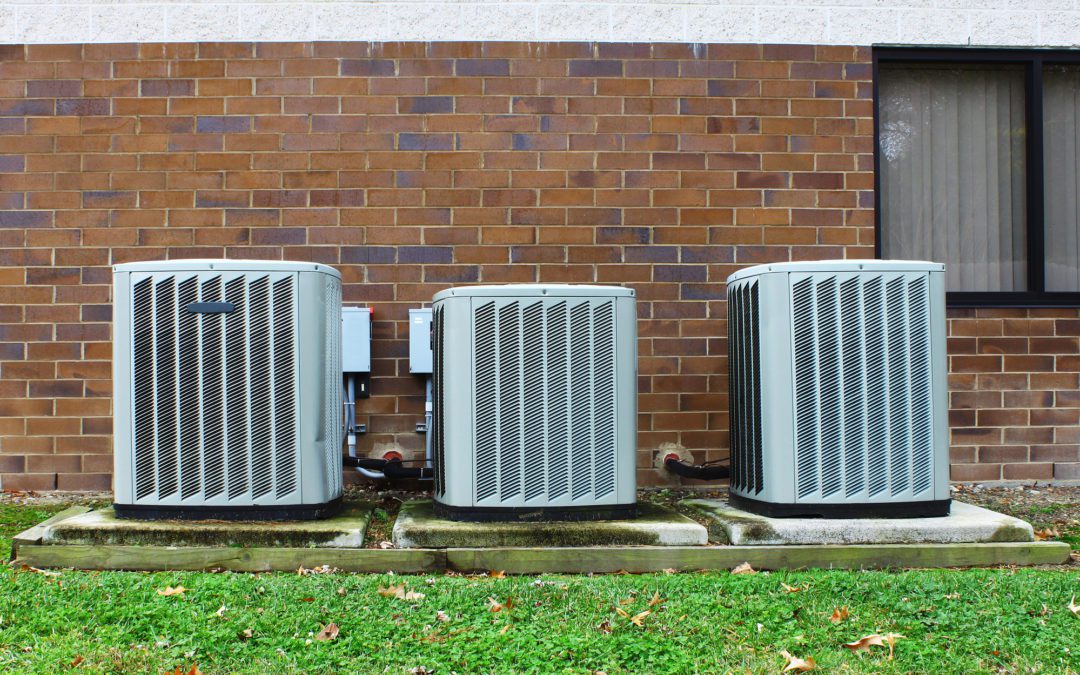An air conditioner that doesn’t work when you need it to keep your space cool can be a source of serious frustration. That frustration only multiplies when the problem is an overheating HVAC system. How could a system designed to keep you cool fail by overheating? If an AC unit gets too hot, it will often shut off automatically as a safety mechanism to prevent damage to its components. In some cases, it could even trip its circuit on the breaker in your home.
So how do you keep your HVAC system from overheating? Preventing the issue in the first place, so you don’t have to call for an emergency HVAC service to diagnose the overheating is the best option. Let’s explore a few of the ways you can do that.
Keep Your Condenser Clean and Free From Blockages
The outside unit of your air conditioner, called the condenser, is where one of the most important parts of the refrigeration cycle occurs. Here, your system radiates out the heat it’s pulling from the air indoors. You’ll often notice these units have a large number of metal “fins” on the outside. These fins are a part of what lets the unit disperse heat. If they become clogged up with dust, dirt, or yard debris, the unit can become less efficient and even ultimately overheat. There are several methods you can use for DIY cleaning of these fins, or you can ask for professional help.
Don’t Let Your Air Filter Become Clogged
As with so many aspects of air conditioner operation, the humble filter remains one of the biggest potential pain points for users. Without regular changes, the filter will gather more and more dust until it is almost impossible for air to flow freely through the system. When AC or furnace hardware has to work even harder to move the air, it could reach the point where it begins to overheat. Change your filter approximately once per month to prevent such blockages while also enjoying a more efficient unit.
Watch Out For ACs That Run For Excessively Long Periods
Does it seem as though your unit runs for hours without shutting off, yet the temperature never really drops? Does your AC run for so long that it overheats and stops? This erratic performance often indicates a more serious problem behind the scenes, such as a refrigerant leak or a blockage somewhere. If you notice your unit’s cycle time becoming longer and longer, call for a professional inspection before the problem escalates to overheating. Your system shouldn’t leak refrigerant under normal circumstances, so damage has likely occurred to the unit somewhere.
Invest in Periodic Maintenance for Preventative Purposes
You can catch problems such as refrigerant leaks early when you make sure you book annual maintenance from your preferred service provider. Perhaps the simplest way to prevent an overheating HVAC system from causing you stress, your contractor will examine every component of your system for quality and freedom from damage. A visit once or twice a year will give you more options for upkeep and a warning when something is on the verge of going wrong.
Know When to Replace an Old Overheating HVAC System
Have you had overheating problems in the past with your unit? Just because it hasn’t quit working again yet doesn’t mean it’s set up to last for another five or ten years. If your AC is approaching 10+ years in age, it has probably reached the end of its usable lifespan. Rather than continuing to invest money in repairs when it overheats, you could replace it with a new unit that is more reliable and energy-efficient. Over time, the energy savings could even “pay” for the replacement cost.
Make Sure Your Condenser Isn’t Being Exposed to Too Much Sun
According to the federal government, homeowners should continue creating shade for their outdoor condensers, especially on window units. Shading the unit will allow for more efficient heat emissions off the fins. In direct sunlight, the heat of the sun’s rays can warm the fins so much that they lose efficiency during AC operation. By shading them instead, you could generate potential savings of up to 10% and avoid overheating risks.
Call for Help When You Can’t Diagnose the Problem
Although preventative maintenance is always the best solution, problems can still develop despite your efforts. When your unit continues to overheat even after trying the standard solutions, it’s time to reach out to a qualified and experienced maintenance provider in your local area. Choose a team that can respond promptly and use their high degree of training to figure out why you have an overheating HVAC system and what to do for a solution. With a proactive attitude towards maintenance, you can enjoy a comfortable home all year.

